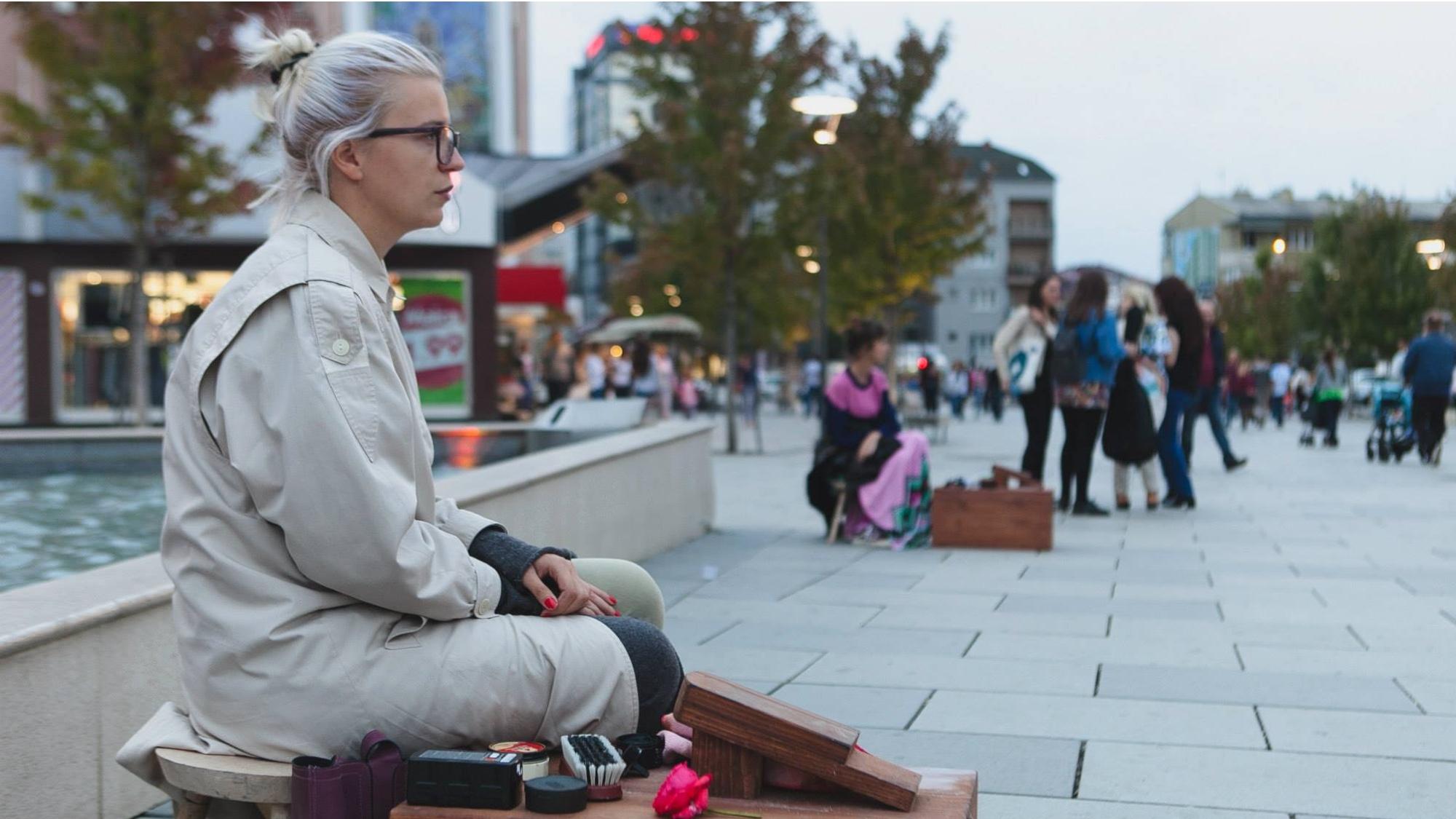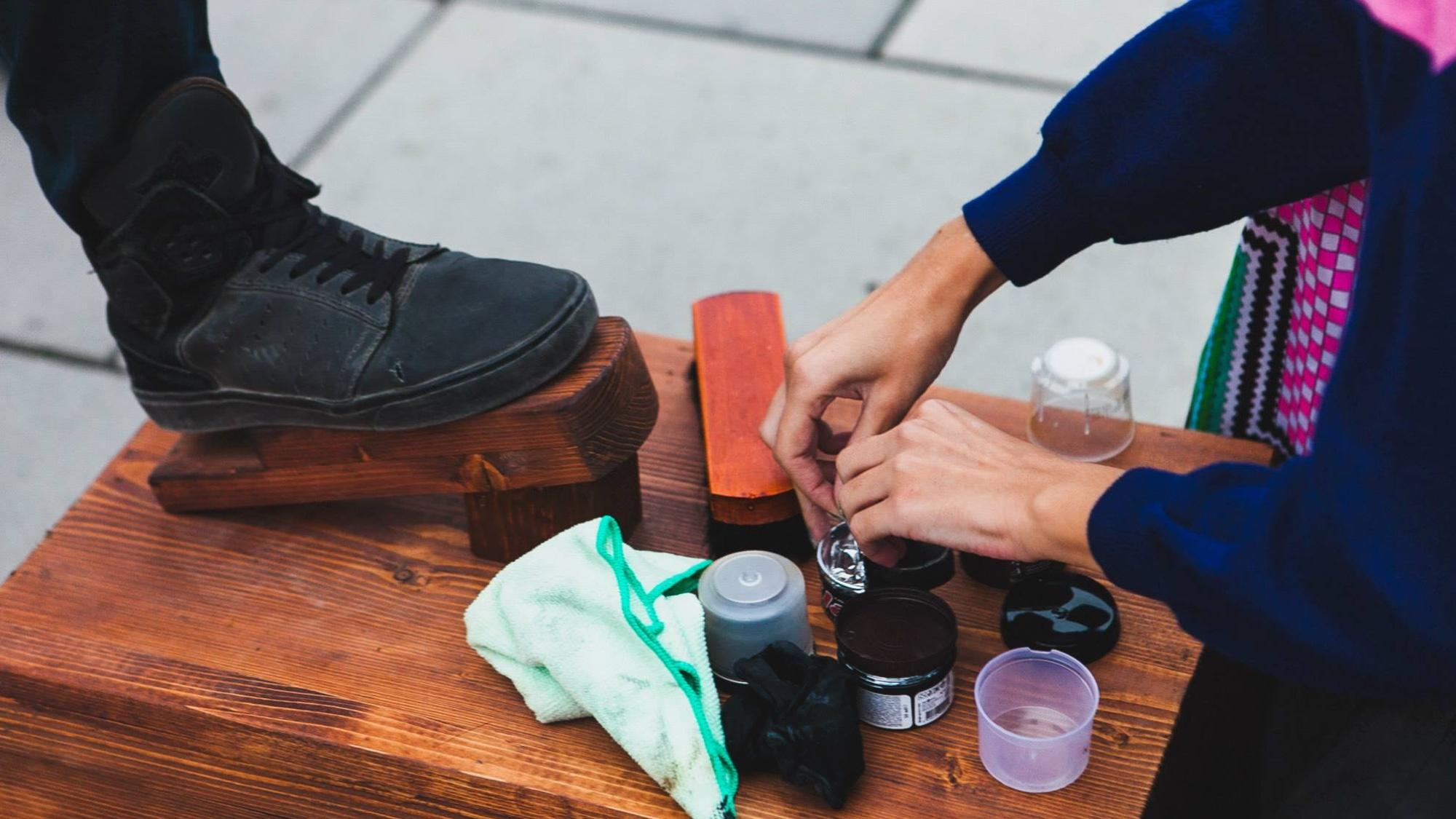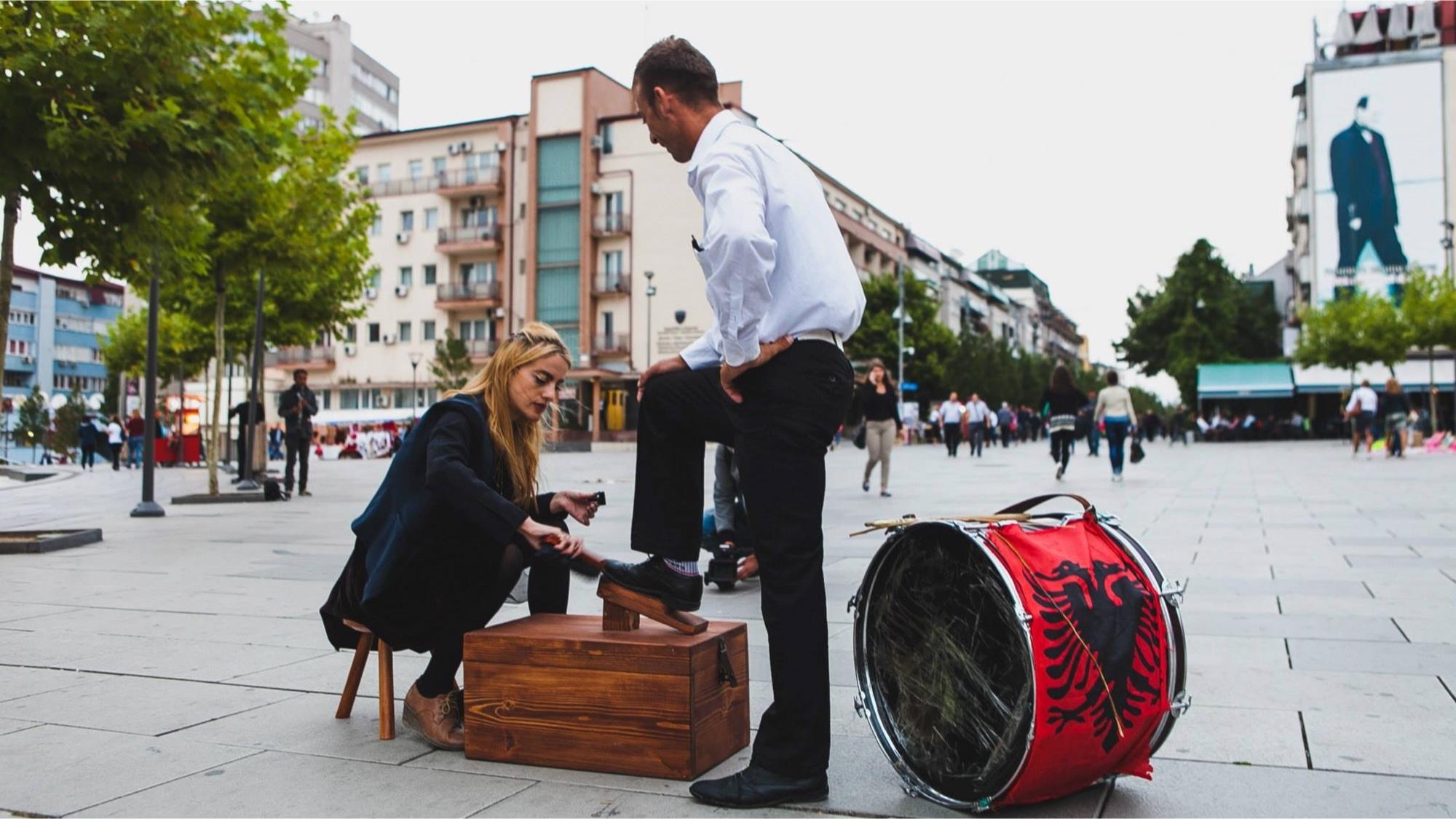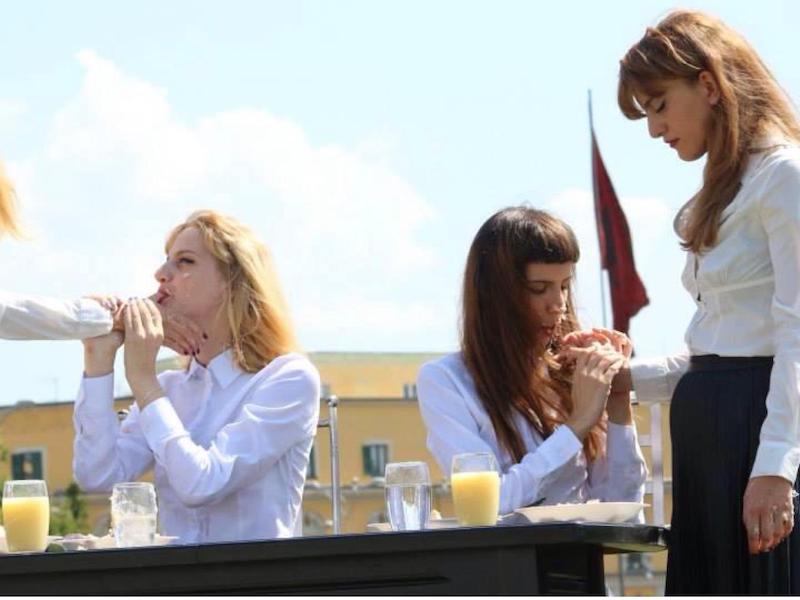Shoe Shining
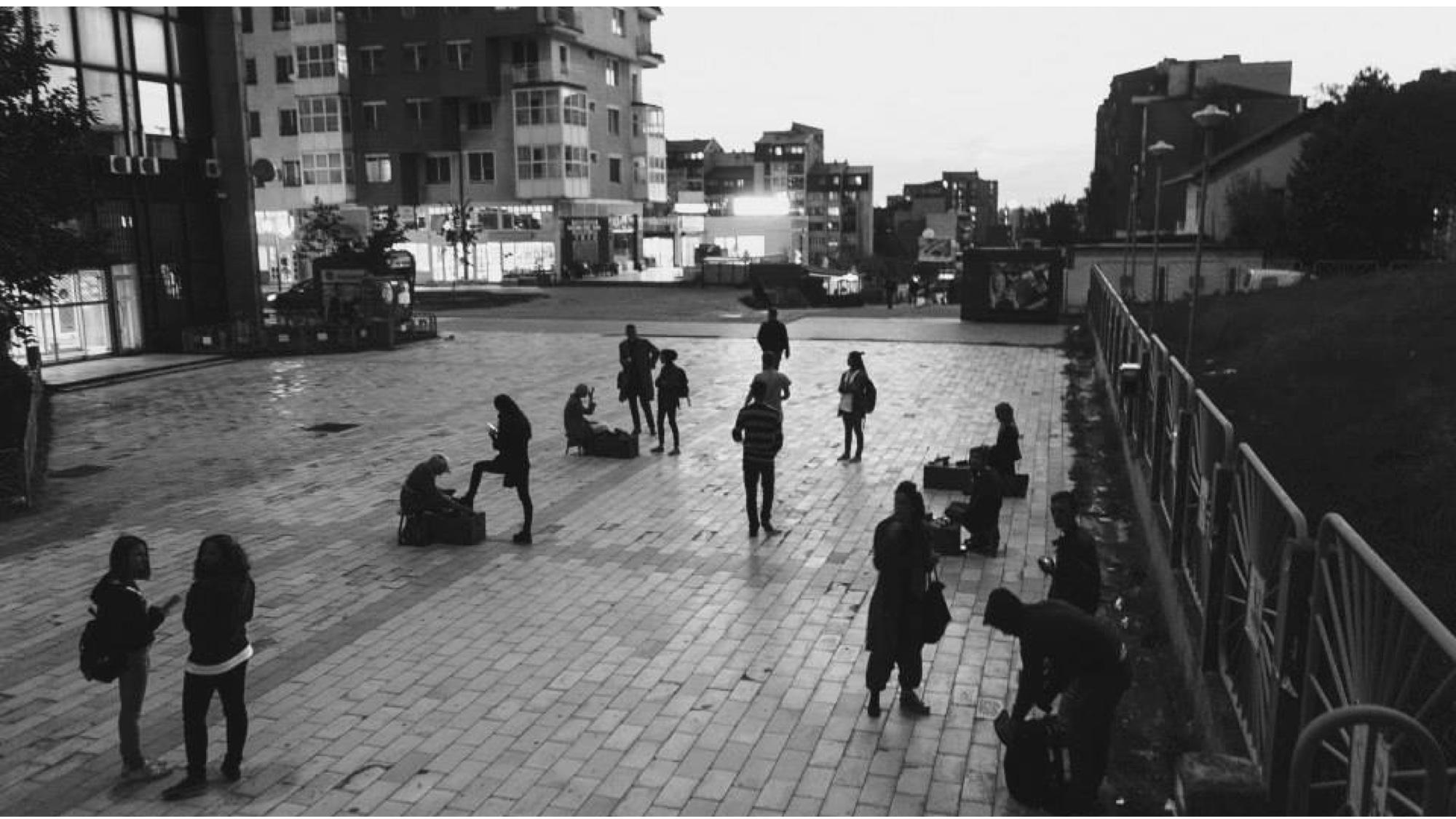
Shoeining is conceived to be performed in different cities. Four women stand in the public space doing a job normally known as a man’s job : they shine shoes. With this performance we want to question the border between private and public. At home, women clean shoes because they are told to do so by their husband, but they cannot go outside in the public space to do so since this job is perceived as a low class job and commonly done by poor men.
In many cities this service doesn’t exist anymore. But, has the domestic abuse vanished too? The performers of Haveit stand in four different places of the city; they have all the necessary tools for shoe shining (small or very shiny and comfortable big chair, small table, brushes, black polish) and they are dressed in very elegant clothes. The shoe shining is done as a ritual : The customers place their shoe between the laps of the performers; the shoe which is about to be polished symbolically belongs to a strong man who is keen on tackling the weakest the poor, and to abuse the woman who polishes the shoe because she is told so.
During the shoe shining ritual the performer addresses the client with a song, short chaotic pieces of narratives or stories about abuses, punctuated with excuses, little grimaces and noises as if the client were stamping on the servant. Though the dialogue could be fragmented and punctuated with answers, the shining girl will nally leave the client disorientated and puzzled. Shoening can be performed anywhere in the city or in the main sites of festival. The money (coins) collected for the service will be symbolically donated to the «Against the violence» movement and foundations.
